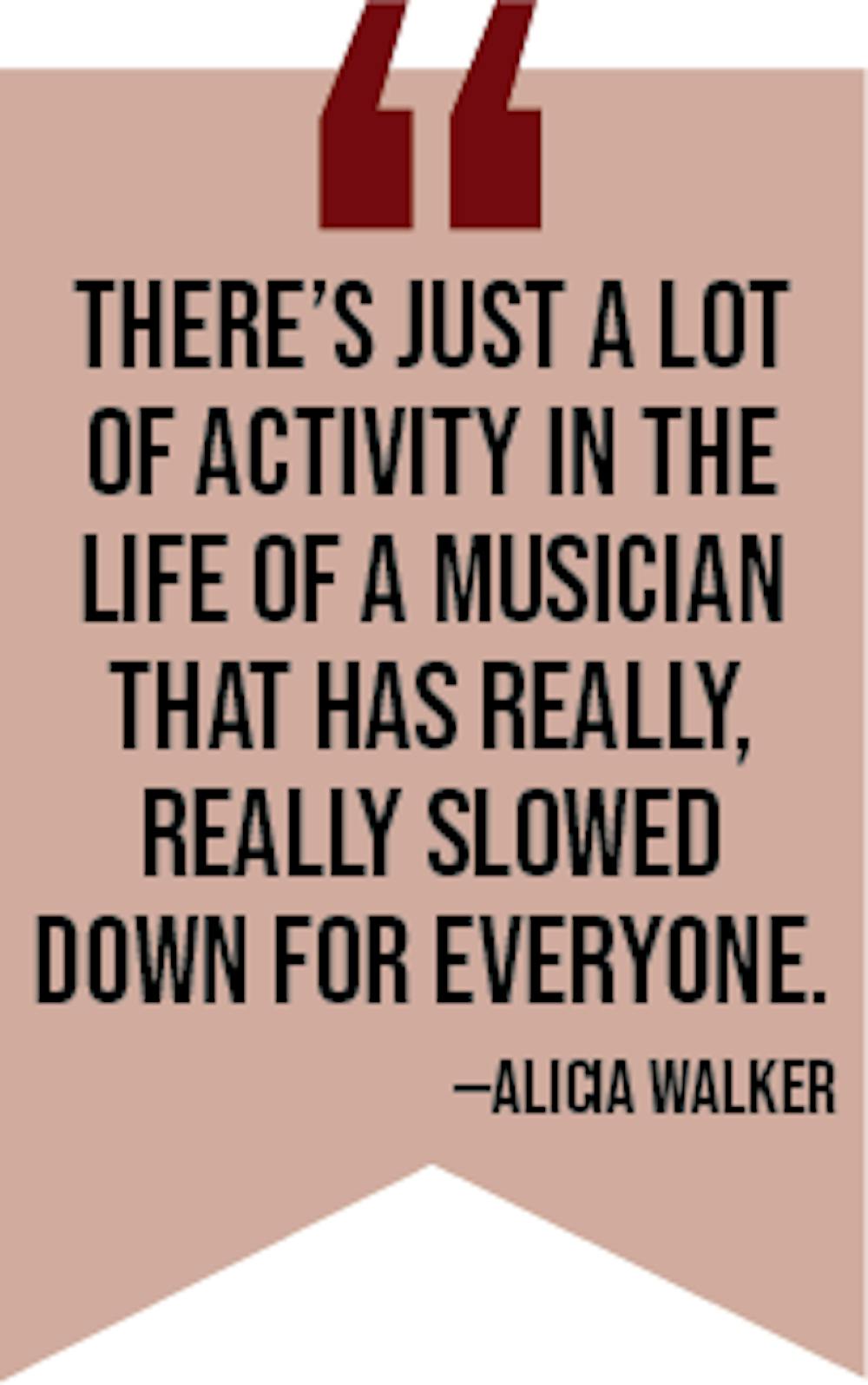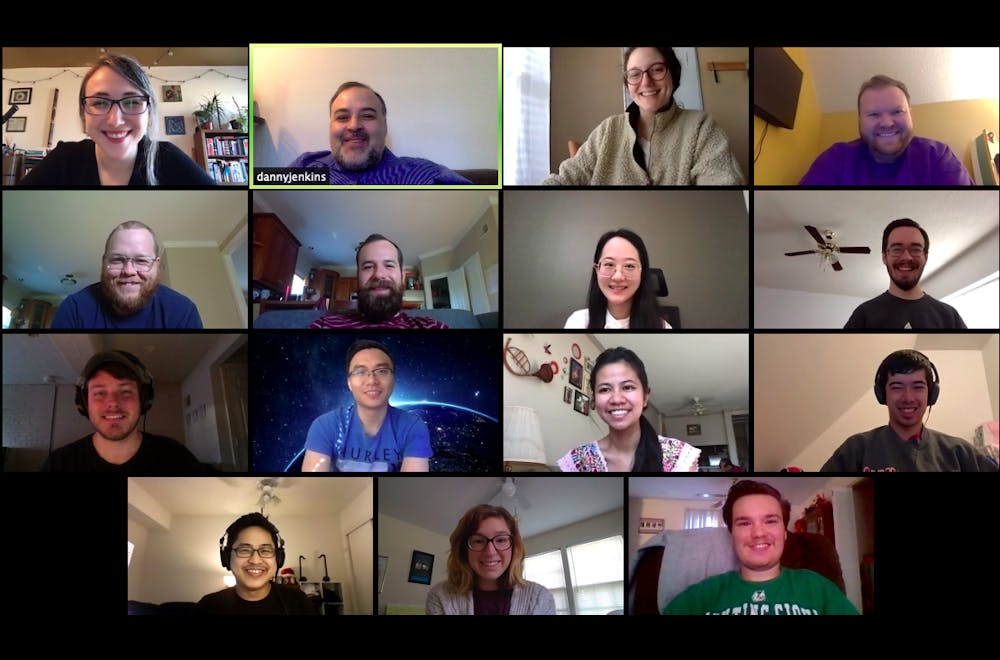Teaching choir ensembles, one-on-one music lessons and other classes in the School of Music are more difficult with the switch to online learning, so music professors are using creative solutions to teach their students effectively.
Alicia Walker, the director of choral studies, conducts the Concert Choir and the USC men’s chorus and teaches classes for masters and doctoral students. She said conducting her ensembles has been difficult over the past few weeks.
“You pretty much have to either completely change gears or do something that’s not related to ensemble performance because we just can’t do that right now,” Walker said.
Currently, there isn’t technology that allows ensembles to practice together effectively, according to Walker.
J. Daniel Jenkins, an associate professor of music theory, said people are recording their music separately, then putting it together, but "that does not, in any way, replace the experience of being in the same space and making music."
Catherine Howland, a fourth-year choral music education student, said in an email interview that she struggled a bit when classes moved online.
“The most challenging thing about switching to online classes is that music classes (especially music education classes) do not translate well into an online format,” Howland said. “Most of my classes are discussion- and activity-based; I don’t have any traditional lecture classes in the School of Music.”
Howland said she gained respect for her music professors and their creative solutions for classroom instruction. Some of her professors have invited guest speakers to her Zoom classes to talk about the fields she and her classmates will be going into.
Daniel Sweaney, an associate professor of viola, conducts one-on-one lessons for students. He also teaches a viola methods class once a semester. He said he initially struggled with choosing a platform that would be compatible with his classes.
“I started off using FaceTime, at first, with all the students who had some kind of Apple device, and then the ones who didn’t, we tried Skype, and that was really, really awful, in terms of connectivity,” Sweaney said. “I started learning that Zoom — you can change a lot of audio settings in it that work better for music.”
He said he has found it challenging to correct students’ form through a video call.
“Usually in a lesson, with the student’s permission, I can go over and just move their hand somewhere or move their arm level somewhere, but [online] you kind of have to go about explaining that in a very different way,” Sweaney said.
Jenkins mainly uses Blackboard for online instruction. His music theory classes had already been structured around that program, he said, and he "wanted as little disruption as possible.”
In addition, Jenkins said he found online textbooks to be helpful. The publisher gave free access to online materials, so he has assigned new online work that the class was not previously doing.
Walker said even though class instruction has been difficult, students have appeared to be resilient during challenging times.
“Everybody seems to be working hard to manage it and to do the best they can,” Walker said. “Most of the music students feel that they’re adapting okay.”
Jenkins said he has been concerned with how his students are during this time, and he has checked in with several colleagues to make sure they are okay.
“There are a couple of students that haven’t accessed Blackboard since before spring break, so I am concerned about them, and I have made the administration aware of those couple cases,” Jenkins said.

Walker said the changes caused by COVID-19 have been "a change of pace" for all music students and faculty.
“Musicians tend to be really busy and kind of run from thing to thing all day long. They have classes, and they practice alone, and then they go to ensembles, and they perform, and they gig and, you know, there’s just a lot of activity in the life of a musician that has really, really slowed down for everyone,” Walker said.
—Nick Sullivan contributed to the reporting of this article.

